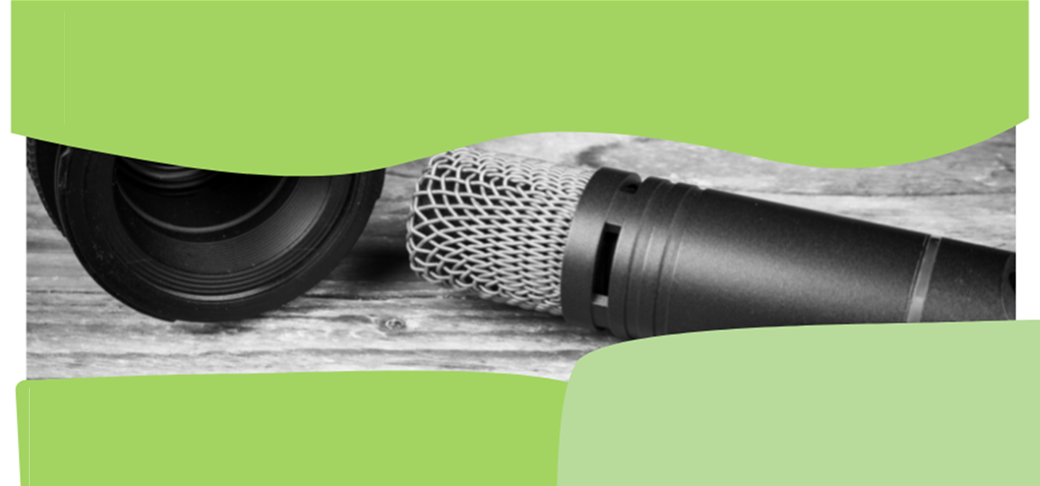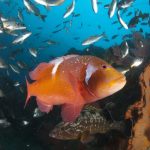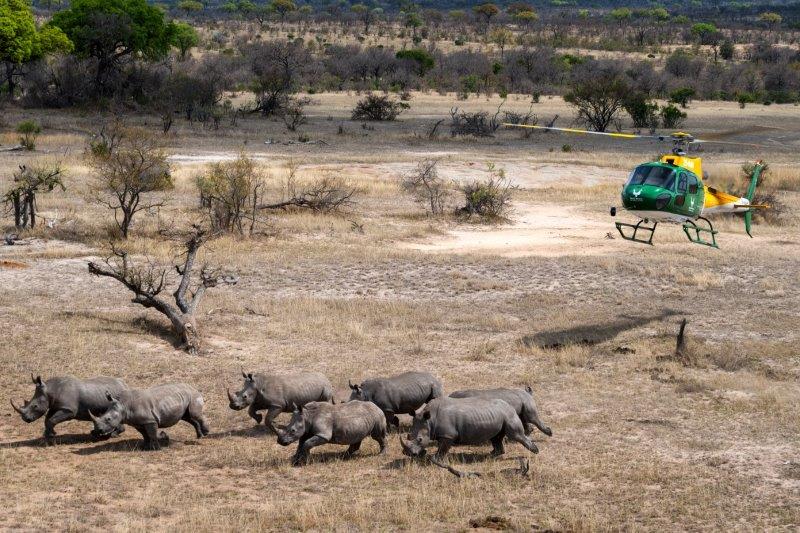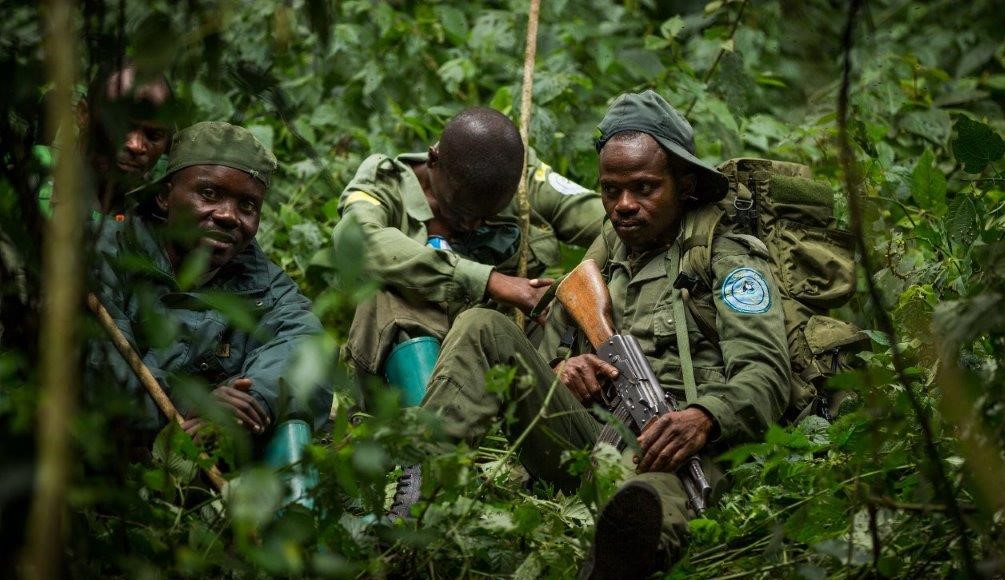Roving Reporters is helping spearhead an innovative journalism project in the Greater Kruger National Park. It aims for more inclusive conversations about wildlife trafficking.
The Greater Kruger, which includes the iconic Kruger National Park, remains heavily affected by wildlife trafficking, in particular rhino poaching.
Wildlife trafficking is a complex matter with wide ranging impacts. It causes declines in wildlife populations, negatively impacts national economies and development, promotes corruption and undermines the rule of law in affected countries like South Africa.
It also affects the safety and security and wellbeing of the people who live in and around affected areas. However, local perspectives are often absent from media reports on illegal wildlife trade.
Voices
The media is powerful in shaping the public’s perception of various issues, including wildlife poaching and trafficking. The failure to include community voices in media reports on illegal wildlife trade will continue the negative public perceptions towards communities who are commonly perceived as being the source of poaching in nearby protected areas Such perceptions undermine communities’ ability to be regarded as important partners in efforts to stop wildlife poaching and trafficking.
WWF South Africa’s Khetha programme, with support from the United States Agency for International Development (USAID), has now partnered with the Wildlife and Environment Society of South Africa (WESSA) and Roving Reporters to train reporters, communication officers and media practitioners from the Greater Kruger to better tell stories of wildlife trafficking, cutting through the old cliches and getting to the heart of the matter.
Lives
“Through this training we want to see more media reports beyond poaching incidents. We want to see reports on how wildlife trafficking affects people’s lives, especially the people who live with wildlife. This training will give reporters insight into what is driving wildlife trafficking and what conditions enable wildlife criminal syndicates to exploit people,” says Lara Rall, project implementation manager at WWF South Africa. “Most importantly, we want to see stories from the Greater Kruger that includes voices from the Greater Kruger told by people of the Greater Kruger.”
The training application is open to reporters, journalists, media practitioners from local media outlets and communication officers in the Greater Kruger with all levels of experience. Only 20 positions are available for this course which will include a combination of online learning as well as a three day in-person workshop with field trip in and around the Greater Kruger region. Trainees are expected to complete the course with a story for which they will receive financial, mentor and editorial support.
“The goal is to help journalists write compelling feature stories on the illegal wildlife trade, giving spaces to new voices, and highlighting fresh perspectives,” says Fred Kockott of Roving Reporters. “We are looking for candidates keen to produce stories that go beyond the ordinary.”
The project’s editorial team includes Andre Wiesner, an award-winning feature writer and training consultant, who is working on an online guide for reporting on wildlife poaching and trafficking. It marries sound journalism with the art and craft of storytelling, all complemented with keen insights on wildlife crime and practical tips and guidance from a panel of guest speakers.
The training course will begin on 1 October 2021. Applications to take part in the course close on 10 September 2021.
To apply, email your CV and a motivation to take part in the Khetha Journalism Project to vincent.shacks@wessa.co.za. Your applications should include an outline of a story idea that you would like to research and complete.
For more details call Shacks at 082 337 1273.
Click here to download the invitation and poster.
About WWF
WWF is an independent conservation organisation, with over 30 million followers and a global network active in nearly 100 countries. Our mission is to stop the degradation of the planet’s natural environment and to build a future in which people live in harmony with nature, by conserving the world’s biological diversity, ensuring that the use of renewable natural resources is sustainable, and promoting the reduction of pollution and wasteful consumption.
WWF South Africa
WWF South Africa is a national office that is part of the WWF network. We are a local NGO that for more than 50 years has been working to ensure a sustainable and equitable future in which humans and nature thrive. For Nature. For You.
WWF stands for the World Wide Fund for Nature
About Khetha
Khetha is a USAID-supported programme that aims to curb the impacts of wildlife trafficking on key populations of flagship species and communities around protected areas in the South African and Mozambican landscape of the Great Limpopo Transfrontier Conservation Area (GLTFCA). The program’s goal is to contribute to positive growth rates in black and white rhino populations and maintain positive growth rates for elephants in the focal area by 2022.
About WESSA
WESSA is a 95-year-old youthful and vibrant organisation with a rich history in South African conservation and environmental education. WESSA researches, develops and implements focused accredited and non-accredited environmental, ecotourism, education and youth development programmes throughout South Africa. We are the sole and proud implementor of all the international Foundation for Environmental Education (FEE) programmes in South Africa, as well as an implementor of choice for various youth programmes on behalf of Government and the private sector. We have a volunteer membership footprint throughout the country, with passionate members ensuring that local conservation and environmental issues are addressed. We are ‘People Caring for the Earth’ and we invite you to join us in our quest to become champions of the environment and achieving a more sustainable South Africa for all.
About Roving Reporters
ROVING REPORTERS is a journalism training agency focused on environmental, social and justice issues. It provides an innovative platform for aspiring and established environmental writers to produce high quality stories for publication by online and print media, both locally and abroad. Key focus areas include:
• the loss of biodiversity – a critical concern for scientists, conservation managers, government agencies and environmental NGOs.
• protection of endangered species.
• empowerment and education of people whose voices are often ignored by the media and the conservation fraternity in searching for viable solutions to the crisis of biodiversity loss.












